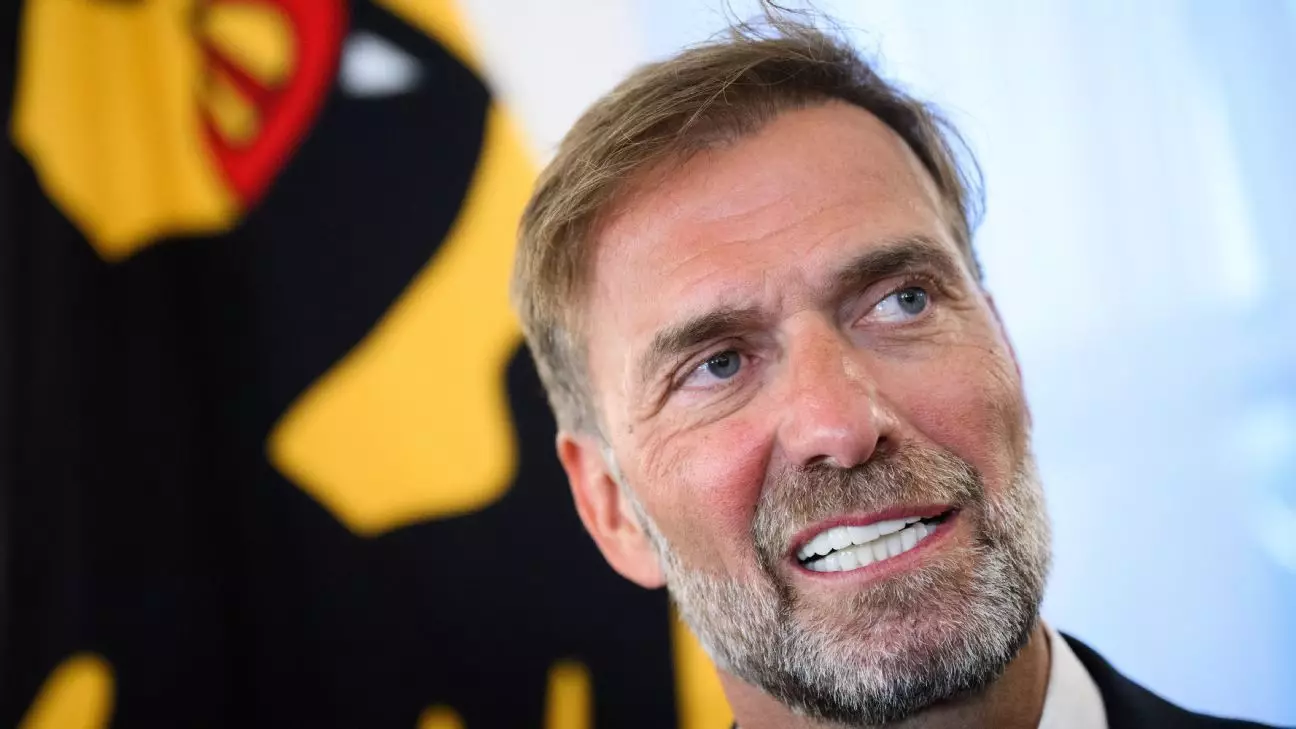Jürgen Klopp, celebrated manager and tactical mastermind, has recently stirred the pot in European football by accepting a high-profile position with Red Bull’s organization of clubs. This unexpected transition from his previous role at Liverpool has raised eyebrows and ignited fervent reactions from supporters, especially those of his former clubs in Germany. As he prepares to step into this new chapter, it is essential to dissect the implications of his decisions and the surrounding controversy.
Klopp’s decision to align with Red Bull has elicited a strong backlash from fans, particularly supporters of Borussia Dortmund and Mainz, where he spent considerable time both as a player and coach. Many perceive Red Bull’s approach to football—viewed by some as detached from grassroots values—as a corporate invasion seeking to monopolize success through financial might. The skepticism is not unfounded; Red Bull has often been criticized for its aggressive expansion and commercialization of clubs like RB Leipzig. This discontent has manifested in protests and heartfelt messages from fans questioning Klopp’s judgment and loyalty.
In an industry where purists hold dearly to the ideology that football should predominantly serve its community, Klopp’s new role comes across as a betrayal, especially given the emotive attachments fans have with their clubs. His statement about not wanting to „step on anybody’s toes“ straddles the line between diplomacy and accountability, leaving both fans and analysts to ponder whether he truly considers the emotional ramifications of his actions.
While the fans’ sentiment is undoubtedly strong, Klopp offers a contrasting perspective. He reframes Red Bull’s investment in clubs like RB Leipzig not merely as a hostile takeover but as a vital infusion of resources aimed at revitalizing football in regions that had been historically overlooked, particularly in East Germany. Here, Klopp highlights a somewhat utilitarian view, where the broader landscape of football can benefit from such investments.
His assertion that he never held a critical view of Red Bull’s involvement signals a potential ideological shift—one that recognizes the practical benefits of enhanced financial backing while downplaying the potential dangers of commodifying football. The nuanced manner in which Klopp approaches the issue reveals an understanding of both sides of the debate, though his attempt to bridge this divide may not appease those who feel betrayed by the commercialized nature of modern football.
Taking on the role as Red Bull’s head of global football, Klopp is not heading towards a conventional managerial position but rather stepping into a consultancy role. He depicts himself primarily as an adviser, aiming to enhance the coaching practices across the Red Bull network. This shift from a high-pressure coaching role could offer him the distance to make strategic contributions without the daily grind of matchday pressures.
Klopp’s remarks about the isolation coaches often face resonate with truths many seasoned managers experience. By positioning himself as a mentor or collaborator, he is attempting to reshape conventional narratives surrounding coaching autonomy within corporate structures. However, this also raises questions about how effective he can be in a consultant role where he may lack the immediate impact typically afforded to a head coach.
As Klopp reflects on his past, acknowledging the deep-rooted affiliations with his former clubs, he faces a pivotal moment that could redefine his legacy. His previous triumphs at Dortmund, characterized by emotional connections and community spirit, starkly contrast with the transactional nature of corporate footballing entities. How he balances these competing ambitions will significantly influence public perception of his career.
Moreover, Klopp’s journey with Red Bull may shape the trajectory of his future endeavors. As he navigates the complexities of modern football, he opens the door for debates about loyalty, commercialization, and the spirit of the game. This chapter is a testament to how even the most revered figures in football can become embroiled in controversy, igniting discussions surrounding the evolution of football culture in an era where economic power often overshadow traditional values.
Jürgen Klopp’s decision to join Red Bull unearths complex discussions about the future of football and the delicate balance between community and commerce. Whether he can reconcile these opposing forces while revamping his professional identity remains to be seen, but one thing is certain: the road ahead will be anything but dull.


Napsat komentář